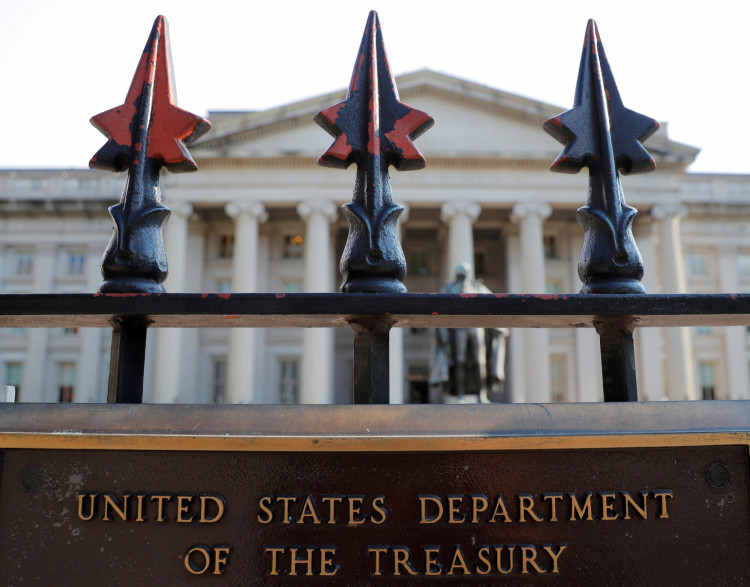The U.S. budget deficit widened to $291 billion in July, up 19% from the same month last year, despite a record surge in tariff revenue from President Donald Trump's trade policies, according to Treasury Department figures released Tuesday.
Treasury officials said net customs receipts in July reached about $27.7 billion, compared with $7.1 billion a year earlier, largely due to Trump's higher tariff rates. That increase-roughly $21 billion-marks a 273% year-over-year jump and follows similar gains in June as importers work through pre-tariff inventories.
Receipts overall rose 2% to $338 billion for the month, while outlays climbed 10% to $630 billion, setting a new July record. The Treasury noted that this year's July had fewer business days than last year, and adjusting for the difference would have reduced the monthly deficit to around $271 billion.
A Treasury official, speaking on condition of anonymity, said the larger gap was driven by increased spending, including higher interest payments on public debt and cost-of-living adjustments to Social Security benefits. The U.S. gross national debt is approaching $37 trillion.
For the first 10 months of the fiscal year, customs duties totaled $135.7 billion, up $73 billion-or 116%-from the prior-year period. The year-to-date budget deficit stands at $1.629 trillion, 7% higher than a year ago.
Trump has repeatedly pointed to tariff income as proof that his policies are enriching the U.S., but economists note the duties are paid by importers and can raise costs for consumers. July's consumer price index data showed price increases in tariff-sensitive goods like furniture, footwear, and auto parts, partially offset by lower gasoline prices.
The Congressional Budget Office projected in June that Trump's tariff strategy could reduce deficits by $2.8 trillion over 10 years but at the cost of slower economic growth, higher inflation, and reduced household purchasing power. Some economists, including Kent Smetters of the University of Pennsylvania's Penn Wharton Budget Model, caution that tariffs will likely result in only modest debt reduction.
Treasury Secretary Scott Bessent said last month the administration is "laser-focused on bringing this deficit down," citing plans to expand trade agreements. On Monday, Trump extended a trade truce with China for 90 days, preserving 30% tariffs on certain imports while negotiations continue. Beijing confirmed the extension through its Ministry of Commerce.






